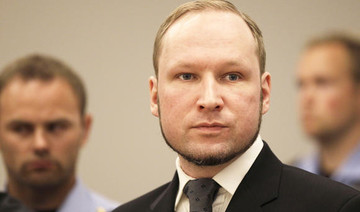KYIV: Ukrainian President Volodymyr Zelensky said Saturday that Russia had begun deploying North Korean soldiers to storm Ukrainian positions in the Kursk region.
He spoke after Russian authorities said their firefighters were battling a blaze in the western Oryol region caused by a drone attack, with Ukraine saying it had hit a major oil terminal.
“Today, we already have preliminary data that the Russians have begun to use North Korean soldiers in their assaults. A significant number of them,” said Zelensky in his evening address.
“The Russians include them in combined units and use them in operations in the Kursk region,” he said.
While so far they had only been deployed there, they might also be sent to other parts of the frontline, he said, adding: “There are also already noticeable losses in this category.”
Washington and Seoul have accused Pyongyang of sending more than 10,000 soldiers to help Moscow, after Russia and North Korea signed a landmark defense pact this summer.
The two US foes have strengthened their military ties since Moscow’s invasion of Ukraine in February 2022.
Zelensky said last month that 11,000 North Korean troops were in Russia’s western Kursk region and had already sustained losses.
Taken by surprise by the Kursk incursion, Russia has since steadily clawed back territory, halting Ukraine’s advance and rushing reinforcements to the region.
A Ukrainian army source told AFP last month that Kyiv still controlled 800 square kilometers (300 square miles) of the Kursk region, down from previous claims it controlled almost 1,400 square kilometers.
Earlier Saturday, Russian officials said firefighters were battling a blaze caused by a drone attack in the western Oryol region.
Ukraine has been targeting fuel depots in Russia in retaliation for Moscow’s strikes wreaking havoc on its power-generation network.
The Ukrainian military said Saturday morning that its forces had attacked a major oil depot in Stalnoi Kon, about 165 kilometers (100 miles) into Russian territory.
One of the largest terminals in Russia, it served Russia’s “military industrial complex” supplying the army, the General Staff said.
The governor of Oryol region, Andrei Klychkov, said on Telegram that a fire was blazing at “a fuel infrastructure facility” in Stalnoi Kon after a “massive drone attack.”
By Saturday evening, he said, firefighters appeared to be getting it under control, but local residents were advised to keep windows closed and not go out.
Russia’s Interfax news agency reported that the attack targeted a facility owned by Transneft-Druzhba, which operates the Druzhba oil pipeline, a key supply route for Russian oil heading to much of central Europe.
Russian media showed images, purportedly of the attack, with clouds of smoke billowing up into the night sky from a fire.
Governor Klychkov said there were no casualties in the attack, during which air defenses had downed 11 drones.
In Russia’s Belgorod region, which also borders Ukraine, a drone attack killed a nine-year-old boy and wounded his mother and baby sister, said the governor Vyacheslav Gladkov.
He posted photos of the family’s home with a huge hole in the facade and the roof partially torn off.
Ukraine regularly attacks military and energy infrastructure in Russia, sometimes deep into its neighbor’s territory, in response to Russian attacks on its own infrastructure.
Kyiv’s General Staff said Russia had attacked overnight with 132 drones, claiming 130 of them were downed or failed to reach targets.
Russia’s military said Saturday that it had meanwhile downed 60 drones overnight.
Russia using North Korean troops in bid to reclaim Kursk: Zelensky
https://arab.news/vsbf9
Russia using North Korean troops in bid to reclaim Kursk: Zelensky

- “Today, we already have preliminary data that the Russians have begun to use North Korean soldiers in their assaults,” said Zelensky
- “The Russians include them in combined units and use them in operations in the Kursk region“


























